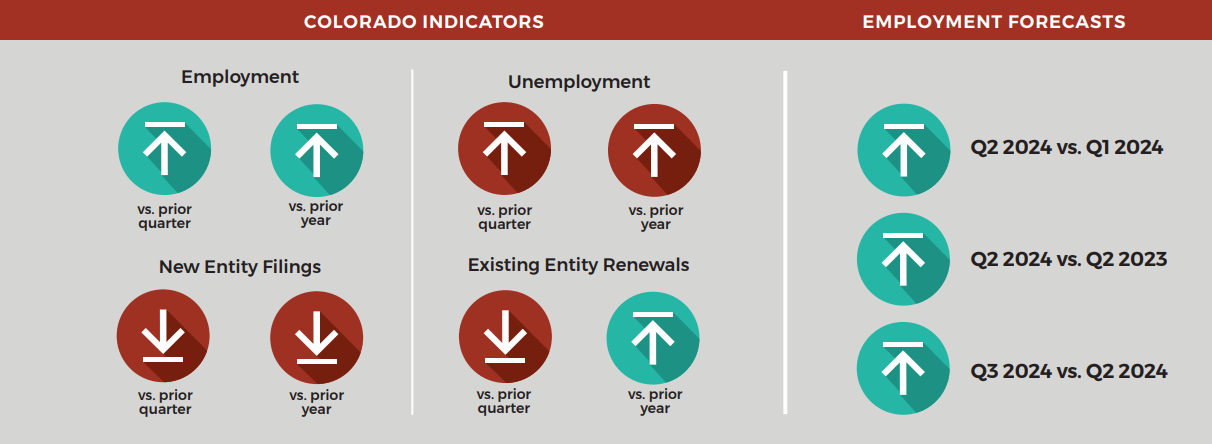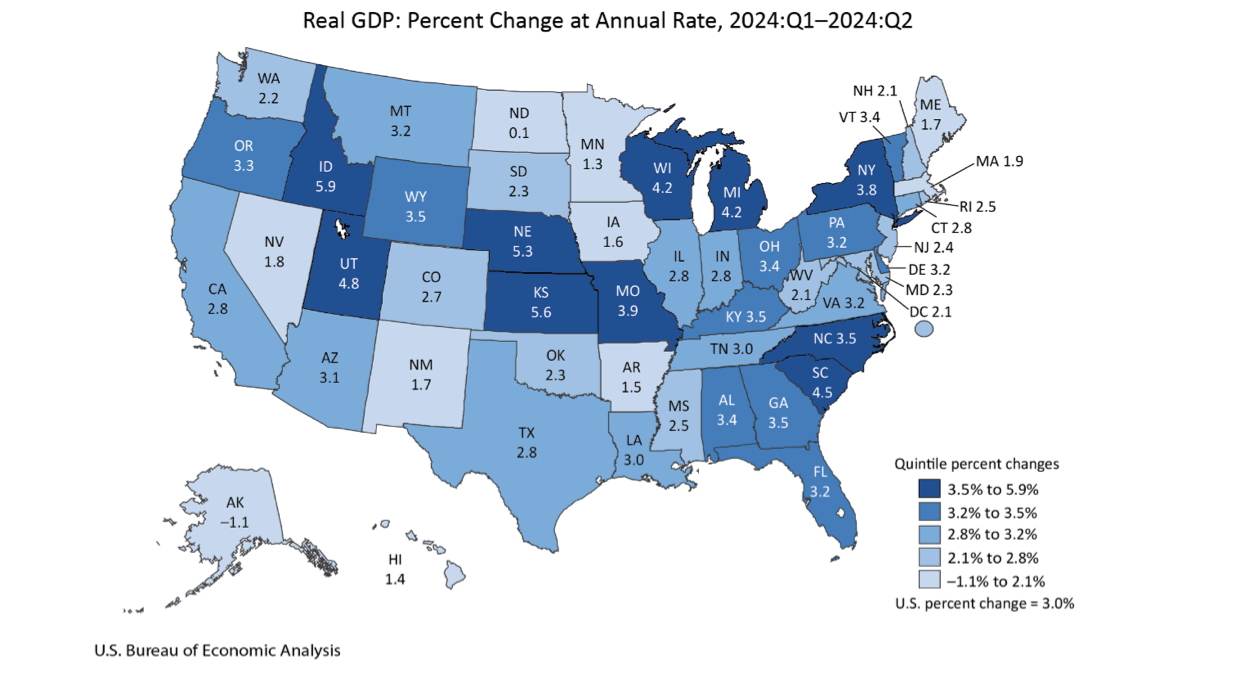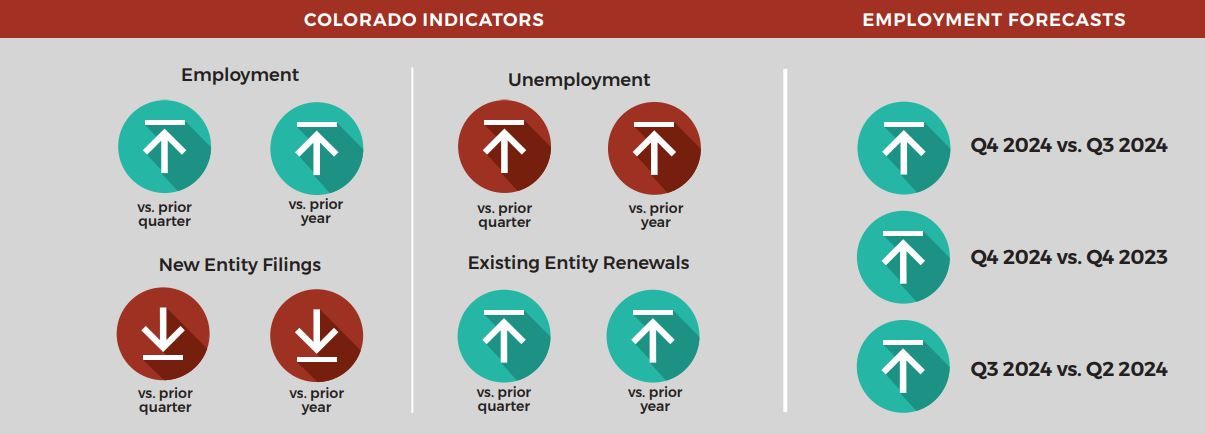CU economists: Indicators don’t suggest recession is ‘imminent’

DENVER — While economic growth is slower than it has been in past years during the post-COVID-19 bounce back, University of Colorado Boulder economists say they don’t believe a recession is now upon us or is right around the corner.
That opinion is supported, they claim, by the Colorado Secretary of State’s Quarterly Business and Economic Indicators report, which was released on Monday for the second quarter of 2024.
The Centennial State’s real gross domestic product grew 3.3% year-over-year in the most-recent period, the report found. Colorado’s GDP was also up 2.8% from the first quarter of 2024.
SPONSORED CONTENT
“After looking at the Q1 numbers we were sort of worried about the slow growth environment for 2024, so it was nice to see this accelerated growth in the second quarter. We have accelerated growth in consumption, in investment and in spending,” said Brian Lewandowski, executive director of CU’s Leeds Business Research Division.
“Our office does not currently believe that the U.S. is in a recession, nor do we believe that one is imminent,” he said.
Still, Lewandowski said, “we do acknowledge that there are some warning signs out there: High interest rates continue to be a burden. There are some unique supply chain issues that continue to pop up around the globe. We see that inflation has gotten better but not taken care of, not solved. We see some consumer headwinds that still certainly exist, whether they be slow savings rate or rising debt.”
Additionally, “there seems to be more uncertainty and apprehension with things like the election and monetary policy,” said Richard Wobbekind, a senior economist at CU and faculty director of the Business Research Division.
There were 43,029 new-business-entity filings in the second quarter of 2024, according to Secretary of State Jena Griswold’s office. That’s down 21.7% year-over-year and down 4.7% from the prior quarter, a trend that Griswold attributes in large part to the expiration of a state program that discounted filing fees.
State lawmakers this year declined to fund the Colorado Business Fee Relief Act, which allowed businesses to form new limited liability corporations and trade names for $1.
“I would really call it a normalization of activity,” Lewandowski said of the new-entity filing decline since the discounted-fee program was discontinued.
Colorado had 177,493 business-entity renewals in the second quarter of 2024, an increase of 3.7% year over year. “Colorado businesses are staying in business,” Griswold said.
Dissolution filings for Colorado businesses totalled 13,127 in the second quarter of this year, up 11.4% from the same period in 2023.
There were 117 business bankruptcy filings in the most recent quarter, a 19.4% increase year over year.
“That is a large percent change, but still a small number,” Lewandowski said. Colorado businesses aren’t experiencing “an alarming number of bankruptcy filings at this point.”
While economic growth is slower than it has been in past years during the post-COVID-19 bounce back, University of Colorado Boulder economists say they don’t believe a recession is now upon us or is right around the corner.
THIS ARTICLE IS FOR SUBSCRIBERS ONLY
Continue reading for less than $3 per week!
Get a month of award-winning local business news, trends and insights
Access award-winning content today!





